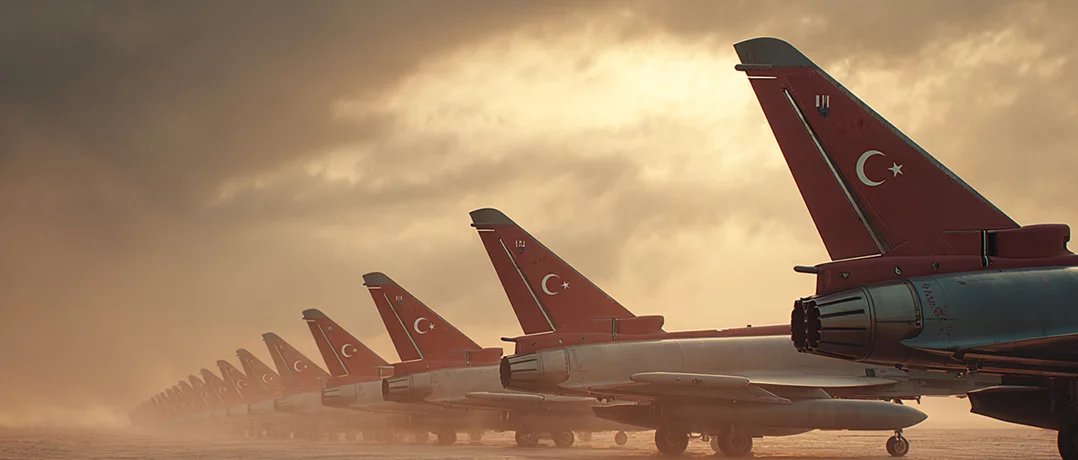With its fleet aging, Ankara seeks to bolster its air power until its homegrown “Kaan” jets are ready for service in the 2030s.
Turkey eyes fighter jet purchase from Qatar as domestic program lags
Turkey eyes fighter jet purchase from Qatar as domestic program lags


Turkey is reportedly in advanced talks with Qatar to acquire second-hand Eurofighter Typhoon jets, a move aimed at reinforcing its air force amid growing regional tensions and delays in domestic aircraft production.
Earlier this year, Ankara held negotiations with the United Kingdom to purchase 40 Eurofighter Typhoon jets, but the talks reportedly stalled over pricing and contractual terms. Turkish defense officials have deemed the U.K. proposal too costly, prompting them to look elsewhere for more affordable alternatives. By contrast, Qatar which operates a fleet of Tranche 3A Eurofighter Typhoons is open to selling some of its jets to Turkey. Though second-hand, these aircraft would significantly enhance Turkey’s air capabilities in the short term.
Aging Fleet and Strategic Urgency
Turkey’s current fleet of F-16 fighter jets has been rapidly aging, raising operational and strategic concerns. Meanwhile, its indigenous fifth-generation jet program, the Kaan, remains years away from completion. Although the first prototype of the Kaan successfully completed initial tests, mass production is not expected before 2028, and full deployment is unlikely before the 2030s, according to defense analysts.
Approval Hurdles and European Interests
Any prospective jet transfer from Qatar to Turkey would require approval from the Eurofighter consortium, which includes the U.K., Spain, Germany, Italy, and France. While formal approval is pending, consortium members are believed to be broadly supportive of the sale, viewing Turkey as a future high-value customer likely to seek upgraded Tranche 4 models equipped with advanced radar and avionics systems.
From F-35 Exclusion to Self-Reliance
Turkey’s pursuit of new aircraft stems largely from its exclusion from the U.S. F-35 program in 2019, after Ankara’s purchase of Russian S-400 air defense systems triggered sanctions under CAATSA (the U.S. Countering America’s Adversaries Through Sanctions Act). Since then, Ankara has sought to expand its domestic defense production and diversify partnerships, aiming to reduce reliance on Western suppliers.
While discussions with Qatar are still ongoing, defense observers note that the deal could serve as a critical stopgap measure to maintain Turkey’s aerial combat readiness until the Kaan enters service. For both Doha and Ankara, the potential agreement also reflects a deepening strategic alignment—one that extends beyond defense cooperation to include shared regional ambitions and military coordination.


